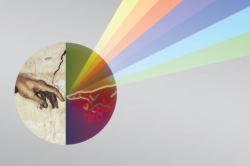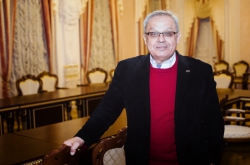The Danfoss group is a global producer that works in such fields as food refrigeration, air conditioning, heating, controlling electric motors, compressors, bowling, drives and powering mobile machinery. The company’s headquarters are located in Denmark. The company has its own academy in the form of a network of of training centers spread throughout the world. In Russia, it has such centers in Moscow, Kazan, Yekaterinburg, Novosibirsk, Krasnodar, and now in St. Petersburg, as well.
“Thanks to the opening of the training center on the base of ITMO University, we can begin our educational activities in Russia’s North-Western Region. ITMO University is amongst the leaders in training qualified personnel in this region, and the School of Biotechnology and Cryogenic Systems is one of Russia’s top training centers for refrigeration specialists. For us, contributing to the training of young specialists in very important; we want people who enter the market to know of all the novelties and trends, and be familiar with the operation and maintenance of modern equipment. At our training centers, we use the equipment that is now in-demand on the market, meaning it is great for advanced training of specialists,” comments Danfoss representative Marsel Mutigullin.
 Marsel Mutigullin and Igor Baranov
Marsel Mutigullin and Igor Baranov
One of ITMO’s laboratories on Lomonosova 9 now features a refrigerating unit, a monitoring system and a cooling shelf for frozen products. This equipment is used for storing products, maintaining and monitoring their condition, including remote monitoring. Bachelor’s and Master’s students now have access to it, meaning that they can conduct their laboratory work on modern hi-end equipment.
The Faculty of Cryogenic Engineering already has many kinds of equipment which allows students to study the methods of increasing the energy-efficiency of refrigerating systems, as well as generation of renewable heat energy. According to Andrei Nikitin, the Faculty’s Dean, Danfoss’s addition will allow researching the processes of integration and management of energy from different renewable sources, decreasing energy consumption and developing the technology of a “zero energy consumption shop” as a result. Students will have the opportunity to conduct research on the operating modes of refrigeration equipment, develop and, most importantly, test the new methods for integrating energy processes.

Why is it so important to decrease the power consumption of refrigeration systems? As of today, we can draw renewable energy from the depths of Earth and electrical energy from the Sun and wind. Yet, the efficiency of such systems is low, and is often insufficient for industrial or commercial use. The problem is that, in the decades to come, we should not expect a rapid growth in the efficiency of these systems, which is why we have to follow a different approach and decrease energy consumption. Product retailers in the regions already face this problem, which is why building new shops becomes harder - in the energy balance of a grocery supermarket, 80% of energy consumption goes to refrigerating equipment.
 Igor Baranov
Igor Baranov
“As of now, we at the School of Biotechnology and Cryogenic Systems conduct research involving PhD and Master's students. This is why we hope that the Danfoss company will provide our young researchers with real tasks from the industry, and our solutions will be sought-after by the industry,” notes Igor Baranov, the School’s Head.
Andrei Nikitin also underlined that Danfoss is amongst the world’s leaders in the field of refrigeration, automation, and energy conservation systems, i.e. technologies which are also developed at the School of Biotechnology and Cryogenic Systems. In future, representatives of Danfoss and ITMO will collaborate on internships at the company’s facilities in Europe. As part of this training, young specialists will get an opportunity to prove their skills and apply them in practice, adds Marsel Mutigullin.

Danfoss academy’s training programs and workshops are developed with regard to the condition of the local market and organizations’ demand. At its events, current specialists can learn of the peculiarities of working with the latest equipment. For instance, the company’s training center in Kazan will soon host workshops on refrigeration equipment which will expand on modern ancillary equipment, new refrigeration technologies and the general trends of the market.





